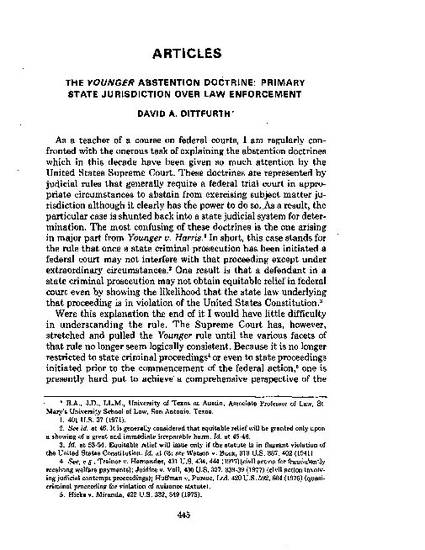
The abstention doctrines have received much attention by the United States Supreme Court over the last decade. These doctrines are represented by judicial rules that require federal trial courts, in appropriate circumstances, to abstain from exercising subject matter jurisdiction although they clearly have the power to do so. As a result, the particular case is shunted back into a state judicial system for determination.
The most confusing of these doctrines is the one arising in major part from Younger v. Harris. In short, this case stands for the rule that, once a state criminal prosecution has been initiated, a federal court may not interfere with that proceeding except under extraordinary circumstances. One result of this is that a defendant in a state criminal prosecution may not obtain equitable relief in federal court even by showing the likelihood that the state law underlying that proceeding is in violation of the United States Constitution.
Further, the Supreme Court has stretched and pulled the Younger rule until the various facets of that rule no longer seem logically consistent. Because it is no longer restricted to state criminal proceedings or even to state proceedings initiated prior to the commencement of the federal action, achieving a comprehensive perspective of the doctrine represented by the Younger case is difficult. For these reasons, thorough analysis of the Younger rule and the doctrine it represents is necessary to reveal the thread of logical consistency which ties together its seemingly disparate facets.
